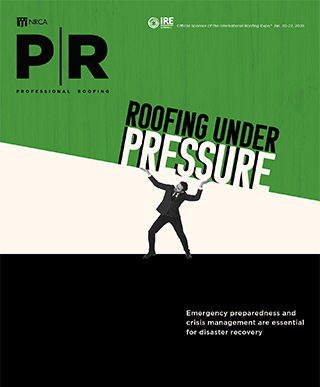The financial meltdown of 2008-09 decimated the construction industry, and though Congress poured billions of dollars into the economy via the American Recovery and Reinvestment Act of 2009 for "off-the-shelf, ready-to-go" construction projects, the commercial construction industry remains greatly depressed. However, the federal government has money and is spending it.
Because there are fewer commercial projects under way than in the past, the federal government is virtually the only game in town. As a result, many construction companies are trying to enter the federal government construction contracting market. However, federal government laws and processes differ from those typically encountered in the state and local government construction sectors, and you must have an understanding of these laws and processes for your bids to be successful.
More companies are bidding federal projects without a well-thought-out strategy or clear understanding of what performing federal work requires, and many are encountering serious financial difficulties that may lead to bankruptcy.
There are many federal requirements that only prime contractors need to be concerned about, but some flow down to subcontractors, as well. Understanding prevailing wages, LEED® requirements, strict safety policies and Federal Acquisition Regulations is necessary to ensure success. You may need to change your management systems to incorporate the required federal processes, and you must develop an effective, winning strategy.
A winning strategy
To put together a winning strategy, you must conduct a thorough analysis of your company's resources and capabilities to determine what type and size of federal project you are capable of performing.
In the current economic environment, bidding is competitive, so choosing an appropriate project for your firm will save you time and money. It makes no sense to bid on projects you have little chance of winning.
Federal projects open for bid can be found on the federal government's website, www.fbo.gov.
Resources and capabilities
Determining your company's resources and capabilities is key when preparing to bid on a federal contract. Once you know your resources and capabilities, you can determine the size, type and location of the project you want to bid on.
Your company resources may include access to money (such as a line of credit); cash flow; bonding capacity; home office organization and personnel; offices and/or personnel in various locations; field personnel; tradespeople (union or open shop); and equipment.
The federal government is the largest owner of real estate in the world, making federal contracts well-suited for roofing contractors, but will your cash flow allow you to perform the amount of work anticipated? Can you bond the work if required, and, if so, will it use up all your bonding capacity?
Project size should be based on your bonding capacity and resources to perform the required work on time. Picking a project that uses all your bonding capacity will use more of your resources and may prevent you from bidding on projects that could be more lucrative. Also, managing a larger project can be daunting.
Evaluating your company's capabilities also will help you determine whether you will be able to perform the work on a particular federal contract. You must define the type of work you perform well, whether it's reroofing; new construction; single-ply membrane or built-up roofing; or specialty roofing such as copper, slate, etc. Picking a project that is primarily in your area of expertise will provide you the best opportunity to win the bid.
You also must determine your company's ability to form a joint venture and/or team with another company. A design-build project generally will require the general contractor to team with subcontractors, and the evaluation criteria will require the team members to have worked together in the past. Unless you can score high in this area, you could be wasting a great deal of time and money preparing a proposal for a federal project.
You also must determine the type of contract capability, such as design-build, design-bid-build, negotiated, cost-plus-fixed-fee or indefinite delivery/indefinite quantity.
Additionally, risk assessment has become a major component of the federal project selection process. This process should include evaluating areas such as external risks (project site); management risks (financial and human resources); and operational risks (quality of plans and specifications, environmental concerns, phasing, time of year for performing the work, etc.). Corporate policy will have to determine what amount of risk is acceptable. You should only bid on projects meeting those criteria.
Eligibility and feasibility
Once you have found a federal project that seems like a good fit for your company, you must determine: Are you eligible to bid on the project? Is it feasible to bid on the project?
Some general contractors limit who can bid on their projects based on socioeconomic requirements. To determine whether you are eligible to bid on a project, consider the following questions:
- Is the project open to all bidders?
- Is the contract a set-aside for small businesses, and, if so, what are the applicable size standards? Is the contract a set-aside for special socioeconomic categories such as HUBZones, small disadvantaged businesses, veteran-owned small businesses, service-disabled veteran-owned small businesses, women-owned small businesses, etc.?
Once you determine your company's eligibility, you need to decide whether winning the bid is feasible. Remember, there is limited time to pull everything together and prepare a winning bid. Consider the following:
- Can you meet the deadline and still have a well-prepared bid?
- Do you have the resources available to gather, read and digest the bid documents; research the bid context; or seek partners if desired or needed?
- Should you consider a joint venture or teaming arrangement?
- Do you have the resources to seek technical information critical to preparing the bid?
- Will you be able to determine material, labor and lower-tier subcontract costs; attend pre-bid meetings, site visits, etc.; communicate with government procurement staff to ask questions and get answers in time to make decisions; and assess the competition?
Competition
Once you have determined a federal project you wish to bid on, it is time to assess the competition. Knowing your competition should be a key factor in determining whether to bid on the project. If you don't know the bidders, take time to learn about them. Go to their websites, check with the department that issues business licenses in your state and check local trade organizations. This can be difficult because some firms will not yet be involved when you decide whether to bid on the project; however, assessing the competition is paramount to developing your bid strategy.
You need to consider:
- Who are your competitors?
- What do you know about them?
- What more can you learn about them?
- Do you have competitive advantage?
- How can you best communicate your advantage?
Keep in mind, if winning the bid is highly unlikely, you shouldn't bid on the project unless you want the experience and exposure.
Preparing a bid
Once you decide you want to bid on a project, the work really begins. The bid must be responsive and competitive. You must understand all the solicitation requirements, and your bid must be complete and delivered exactly as required. It also must clearly show you understand the work and would be a great asset to the project team.
When preparing the bid, provide all that is required by the solicitation, including any required associated documents. Check to make sure you have all the amendments, and acknowledge each. Take notes, highlight important requirements, and use sticky notes or clips. Make lists for what is required.
If you are teaming with a general contractor, seek clues to the contractor's perspective. Review Section M—Evaluation Factors for Award, which is included in the federal government solicitation. Make sure you clearly satisfy all the general contractor's evaluation criteria. When in doubt, default to the general contractor's bid document structure.
Also, check for other requirements, such as:
- Are any security clearances required? If so, can you get them in time?
- Are any state or local licenses required?
- Are your taxes paid?
- Are you debarred or in the Excluded Parties List System?
Remember, the federal government's unique quality control and safety requirements as shown in the bid documents must be built into your price.
Importantly, make sure you pay attention to the bid delivery. It must be delivered on or before the deadline, and it must be delivered to the correct person at the correct address.
If you are teaming with a general contractor, the package must be complete and marked as required by the solicitation; hard copies, electronic submittals and numerous copies must be delivered as specified. Fax or e-mail bids only if expressly permitted.
Winning the bid
Selecting a federal project and preparing a bid can be tedious; prepare yourself early so the decision to go forward allows you enough time to put together a thorough bid.
In addition to the efforts I have mentioned, the following tips can help improve your chance of winning the bid:
- Be upfront with communication. Get on the federal government's Interested Vendors List. You can access and add your company to the list by going to www.fbo.gov, accessing the solicitation and clicking on Vendors List. Also, ask intelligent questions—in person or by telephone if possible. This can help you develop relationships with general contractors.
- Attend pre-bid meetings and site visits.
- Be a team player, and be part of the solution. Make suggestions that may help reduce costs, but don't make any changes unless the general contractor agrees to them.
- If the project is a design-build, reading Section M—Evaluation Factors for Award is especially important. You may be able to help the general contractor with its technical and management approach.
Remember, your bids reflect your company's competence and should inspire confidence in you. You are trying to show the general contractor your company is the most qualified firm to do the work. And don't get discouraged if you do not win some bids; preparing bids for federal contracts takes practice and can be learned only from experience.
Stanley Uhlig is owner of and consultant for Federal Construction Consultants, Seattle.
Self-assessment
To determine whether you should bid on a federal project, ask yourself the following questions:
- Assuming you win the bid, can you perform the work as required?
- Do you have all the required expertise and skills?
- Can you obtain all the materials in a timely manner?
- Is your company structure able to handle the project?
- Can you obtain the required bonding and insurance? Is there any special insurance needed, such as environmental insurance?
- Do you need any special licenses or other credentials?
- Do you understand what quality control systems will be required?
- Will cash flow be an issue?
- Is the project an appropriate size for your company?
- Have you performed your risk analysis, and are the risks worth it?
- Are the rewards worth doing the project? Can you keep your profit margin high enough to make the project worthwhile?
- Does the contract fit with your short-, intermediate- and long-term goals?
- Is the project consistent with your business plan?
- Are you prepared for any special requirements such as International Traffic in Arms Regulations, security clearances, financial audits, etc.?



